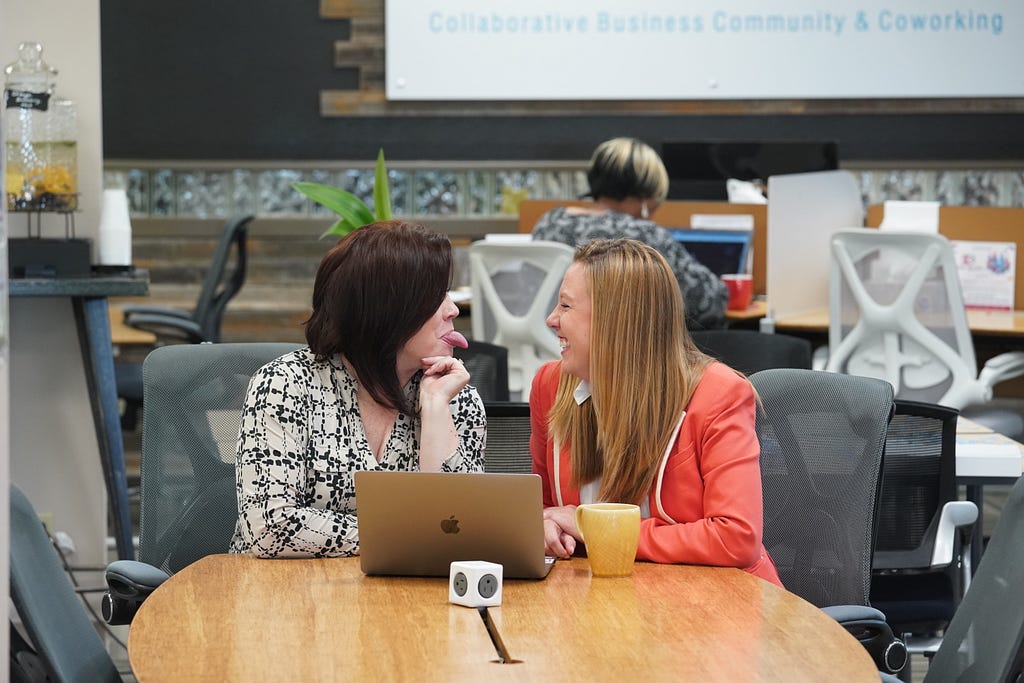C-Suite Perspectives On AI: Megan Bond Of Panther City Marketing On Where to Use AI and Where to Rely Only on Humans
An Interview With Kieran Powell
AI is fantastic for automating repetitive tasks like sending follow-up emails or tracking customer behaviors online. However, when it comes to personal interactions — especially customer service or sales — human touch is irreplaceable. Clients appreciate a real person they can speak to, which fosters trust and builds stronger relationships.
As artificial intelligence (AI) continues to advance and integrate into various aspects of business, decision-makers at the highest levels face the complex task of determining where AI can be most effectively utilized and where the human touch remains irreplaceable. This series seeks to explore the nuanced decisions made by C-Suite executives regarding the implementation of AI in their operations. As part of this series, we had the pleasure of interviewing Megan Bond Of Panther City Marketing.
She works primarily with small businesses to grow their client base in a measurable way. She works to help them write overall marketing plans, increase their social media presence, create effective print and digital advertising campaigns, improve both paid and organic SEO (search engine optimization), create responsive and attractive website that encourage conversations and target the right customers to effectively grow their business in the direction that they desire.
Thank you so much for your time! I know that you are a very busy person. Our readers would love to “get to know you” a bit better. Can you tell us a bit about your ‘backstory’ and how you got started?
I think I always wanted to be an entrepreneur and just didn’t know it until 25. From wanting to start a jewelry company out of my parents living room at age 5, to teaching tennis lessons at 13 and setting up a hot chocolate stand over Christmas, the desire was always there I just didn’t realize exactly what it was. I remember reading “Freakonomics” in 8th grade and I think that made that spark come to life. I never had that typical “teenage job” of waiting tables or working a register. That just never really appealed to me. Following TCU, I went into finance. After a few years I finally realized I wanted to invent and be creative in the business space for myself, thus MB Marketing was born.
Are you working on any exciting new projects now? How do you think that will help people?
Currently I am working on a webinar series teaching people how to build a better website using AI. This is helpful because it will allow small businesses to improve their marketing without spending too much of their time working on it
Thank you for that. Let’s now shift to the central focus of our discussion. In your experience, what have been the most challenging aspects of integrating AI into your business operations, and how have you balanced these with the need to preserve human-centric roles?
The hardest part of integrating AI into my business operations is making sure that we don’t lose the human touch. The second hardest thing is making sure that everything is accurate. We make sure to review all of our AI content with a human reviewer to make sure that it is edited with the human touch, that it is accurate, and that it reflects our brand voice.
Can you share a specific instance where AI initially seemed like the optimal solution but ultimately proved less effective than human intervention? What did this experience teach you about the limitations of AI in your field?
One of the biggest places I have run into problems with AI is using it for Communications and interactions with customers. When AI doesn’t know the answer it will tend to make something up which isn’t great, and can provide bad expectations from customers. This can be anything from providing the wrong date for an event to providing unrealistic expectations for products or services provided.
How do you navigate the ethical implications of implementing AI in your company, especially concerning potential job displacement and ensuring ethical AI usage?
Currently AI has allowed us to actually hire more employees because it allows our employees to be more effective with less of their time which allows our company to be more efficient.
Could you describe a successful instance in your company where AI and human skills were synergistically combined to achieve a result that neither could have accomplished alone?
Before the advent of AI, creating website content for clients was time-consuming and could often be cost prohibitive for these clients. We now use AI to be able to provide a website content that converts for our clients for a little additional fee.

Based on your experience and success, what are the “5 Things To Keep in Mind When Deciding Where to Use AI and Where to Rely Only on Humans, and Why?” How have these 5 things impacted your work or your career?
1. Use AI for Data-Driven Tasks, but Rely on Humans for Strategy
AI excels in processing large amounts of data quickly and efficiently. For example, AI tools like Google Analytics and various ad management platforms help us analyze the performance of Google Ads or Facebook campaigns. However, deciding on the strategy — such as which target audience to focus on or what messaging will resonate — still requires human intuition and creativity.
Example:
We had a client whose ads were not converting well despite strong traffic. The data pointed to good engagement, but after a human review, we realized the messaging was too formal for their audience. We tweaked the tone, and their conversions improved, showing that while AI gives great insights, human analysis can be the game-changer.
2 . Automate Repetitive Tasks, but Keep Customer Interactions Human
AI is fantastic for automating repetitive tasks like sending follow-up emails or tracking customer behaviors online. However, when it comes to personal interactions — especially customer service or sales — human touch is irreplaceable. Clients appreciate a real person they can speak to, which fosters trust and builds stronger relationships.
Example:
One of my clients expressed frustration over the slow response times they were experiencing with another agency that relied too heavily on automated responses. By maintaining our policy of responding personally to client queries, we built trust and long-term relationships that resulted in more referrals and satisfied customers.
3 . Use AI to Generate Content Ideas, but Humanize the Execution
AI can quickly suggest blog topics, headlines, or even first drafts of social media posts. However, these often lack the emotional resonance and creativity that only a human can bring. We often use AI tools to speed up the brainstorming process, but then a human steps in to fine-tune the messaging so it connects authentically with the audience.
Example:
We had a local business client who needed a fresh content strategy for their social media. While AI helped generate a list of relevant topics based on trends, it was our team’s personal touch that shaped those ideas into engaging posts that felt genuine and reflected the local culture of Fort Worth.
4 . AI for SEO Optimization, Humans for Creative SEO Strategy
AI tools are great for optimizing websites — ensuring proper keywords, tags, and load speeds. However, SEO strategy still requires human understanding of the nuances in customer behavior, competitor analysis, and industry trends. AI can tell you what keywords to use, but humans can craft the content that will resonate and convert.
Example:
We once used AI to optimize a client’s website for search engines, which improved their rankings. However, it was our understanding of their industry and target audience that allowed us to craft personalized blog posts and landing pages that improved both traffic and conversions.
5 . Use AI to Improve Efficiency, but Keep Creative Vision Human-Led
AI can make processes more efficient — whether it’s through automation, data analysis, or project management. However, when it comes to creative direction — whether it’s designing a new website or planning a marketing campaign — human insight is still critical. AI can help us work faster, but humans ensure the final product is aligned with the brand’s vision.
Example:
When redesigning a website for a small business, we used AI to quickly test various layout options and improve user experience. However, the overall design vision — how it captured the business’s brand and spoke to its audience — was a human-led process. The balance of efficiency and creativity resulted in a website that not only looked great but also converted visitors into clients.
Looking towards the future, in which areas of your business do you foresee AI making the most significant impact, and conversely, in which areas do you believe a human touch will remain indispensable?
I believe that AI will make the most significant impact in data analysis and quicker content creation, however, humans will still need to come up with the creative ideas and understand the strategy and the brand voice for those customers
You are a person of great influence. If you could start a movement that would bring the most amount of good to the most amount of people, what would that be? You never know what your idea can trigger. 🙂
I would empower young women to branch into entrepreneurship. I think a lot of the time it is discouraged. There are many times when being a woman has been difficult. There will always be the good ‘ol boys club, but the relationships that I’ve made with other women entrepreneurs has been stronger than anything else I’ve seen.
How can our readers further follow your work?
https://panthercitydigitalmarketing.com
linkedin.com/in/megan-brown-marketing
This was very inspiring. Thank you so much for the time you spent with this!
About The Interviewer: Kieran Powell is the EVP of Channel V Media a New York City Public Relations agency with a global network of agency partners in over 30 countries. Kieran has advised more than 150 companies in the Technology, B2B, Retail and Financial sectors. Prior to taking over business operations at Channel V Media, Kieran held roles at Merrill Lynch, PwC and Ernst & Young. Get in touch with Kieran to discuss how marketing and public relations can be leveraged to achieve concrete business goals.
C-Suite Perspectives On AI: Megan Bond Of Panther City Marketing On Where to Use AI and Where to… was originally published in Authority Magazine on Medium, where people are continuing the conversation by highlighting and responding to this story.


